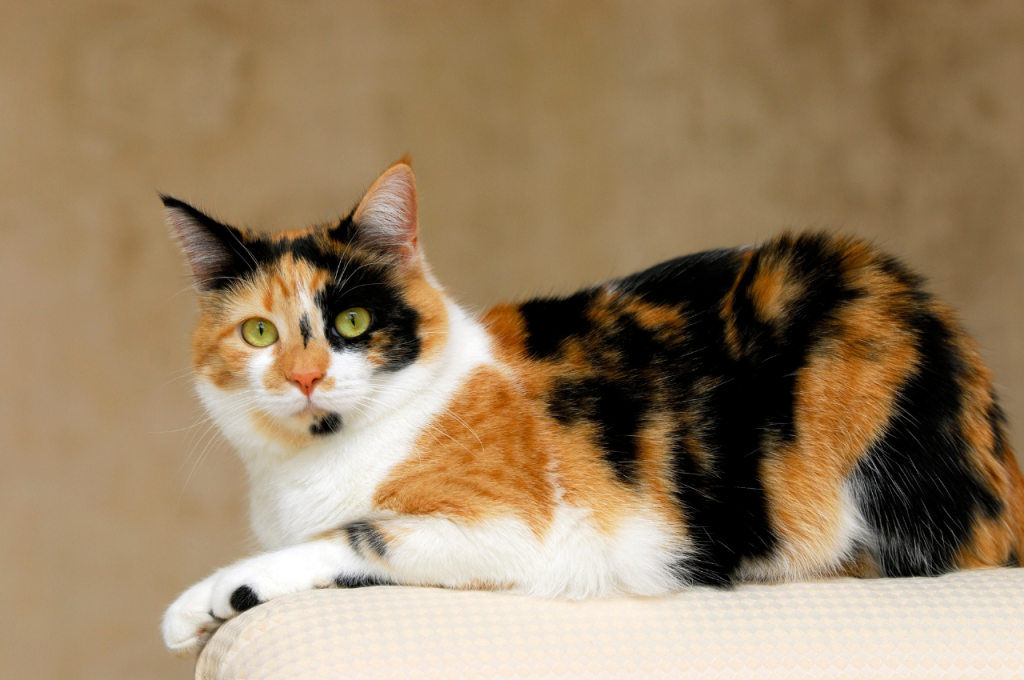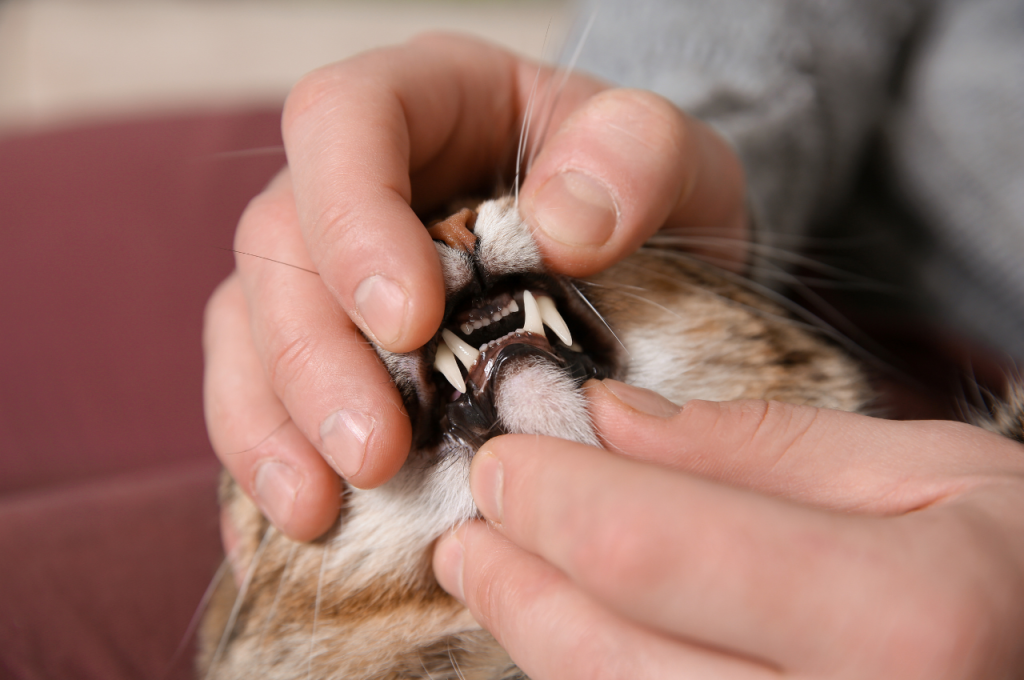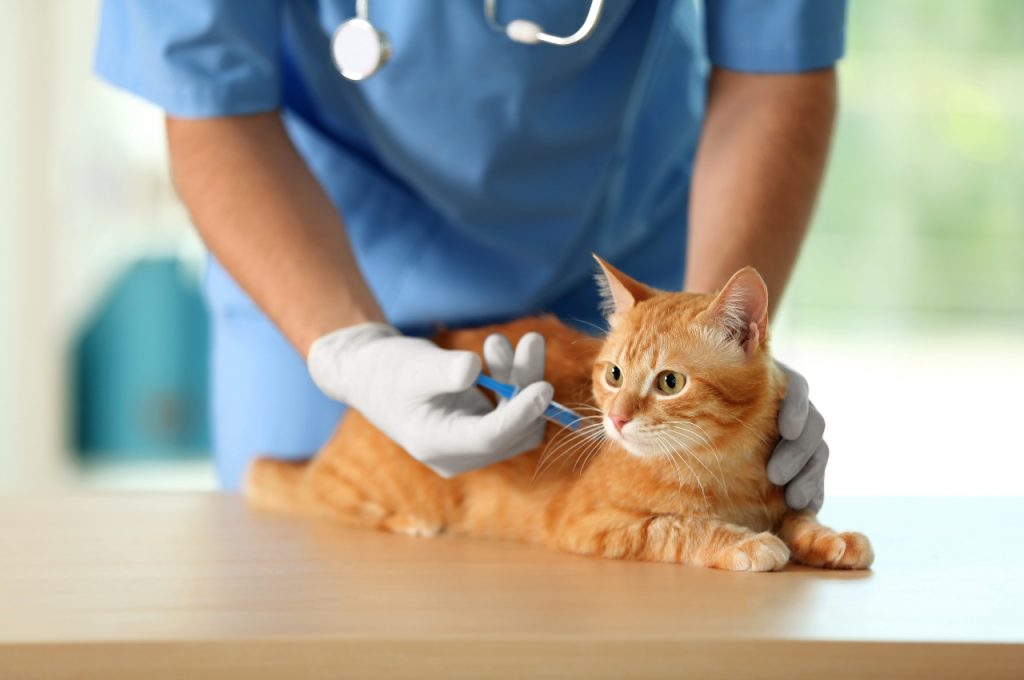To check if a cat is healthy, observe its behavior and physical appearance. Look for signs of a healthy appetite, normal energy levels, a shiny coat, bright eyes, and a moist nose.
Additionally, ensure that the cat has regular bowel movements and maintains a healthy weight. Regular veterinary check-ups are also essential to ensure overall health and catch any potential health issues early on. By paying attention to these indicators, you can assess the well-being of your feline companion and address any concerns promptly.
Recognizing a Healthy Cat
Easily assess your cat’s health by checking for clear, bright eyes, a shiny coat, and a healthy weight. Monitor their behavior for signs of energy and curiosity, and ensure they have a good appetite and regular bathroom habits. Regular vet check-ups are crucial for maintaining your cat’s well-being.

Physical Appearance
- A healthy cat has bright and clear eyes without any discharge.
- The ears are clean, pink, and free of foul odors or excessive wax.
- A shiny coat that is free of bald patches or signs of irritation.
Behavior and Energy Levels
- A healthy cat is alert and responsive to stimuli in its environment.
- Engages in playful activities and seeks interaction with humans.
- Eats and drinks regularly and uses the litter box consistently.
The Importance Of Regular Veterinary Check-ups
Regular veterinary check-ups are crucial for ensuring the well-being of your feline companion. Preventive care and early detection of diseases are essential aspects of maintaining the health of your cat. By understanding the significance of regular veterinary check-ups, you can provide your cat with the best possible care to promote a healthy and happy life.
Preventive Care
Preventive care plays a vital role in keeping your cat healthy. Regular vaccinations help protect your cat from various diseases, while parasite control safeguards against fleas, ticks, and worms. Additionally, nutritional counseling from a veterinarian ensures that your cat’s dietary needs are met, promoting overall health and well-being.
Early Detection Of Diseases
Regular veterinary check-ups facilitate the early detection of potential health issues. Routine physical examinations enable veterinarians to identify any abnormalities, while diagnostic tests such as blood work and urinalysis help detect underlying conditions. Early intervention can significantly improve the prognosis of many health problems, enhancing the quality of life for your cat.
Monitoring Weight and Diet
Monitoring a cat’s weight and diet is essential for ensuring their overall health and well-being. By paying attention to their weight and nutritional intake, you can effectively assess their health status and make any necessary adjustments to promote their longevity and vitality.
Ideal Weight Ranges
Understanding your cat’s ideal weight range is crucial for gauging their overall health. Different breeds may have varying ideal weights, so it’s important to consult with your veterinarian to determine the optimal range for your specific feline companion. Regularly monitoring your cat’s weight and comparing it to the ideal range can help identify any potential health issues.
Nutritional Requirements
Meeting your cat’s nutritional needs is a key aspect of maintaining their health. Providing a balanced diet that includes essential nutrients such as protein, vitamins, and minerals is essential for their well-being. Consult with your veterinarian to ensure that your cat’s diet aligns with their nutritional requirements based on factors such as age, activity level, and any underlying health conditions.
Assessing Coat and Skin Health
Assessing a cat’s coat and skin health is crucial in determining its overall well-being. A healthy cat should have a shiny coat and smooth, supple skin. By paying attention to these physical indicators, you can gain valuable insights into your feline friend’s health.
Shiny Coat as a Health Indicator
A cat’s coat should be shiny, smooth, and free of dullness or greasiness. A glossy coat is often a sign of good health, indicating a well-balanced diet and proper grooming habits. Regular brushing can help distribute natural oils and promote a healthy sheen.
Common Skin Issues
- Dry, flaky skin
- Excessive shedding
- Scabs or sores
- Redness or irritation
These are all common indicators of potential skin issues in cats. If you notice any of these signs, it’s important to consult a veterinarian to address the underlying causes and ensure your cat’s skin health is maintained.
Evaluating Eye and Ear Health
To ensure your cat’s health, regularly evaluate its eye and ear health. Check for any discharge, redness, or swelling in the eyes, and observe for excessive scratching or head shaking indicating ear issues. Any abnormalities should prompt a visit to the veterinarian for a thorough examination.
Clear and Bright Eyes
Healthy cat eyes should be clear and bright, with no cloudiness or discharge.
Ear Cleanliness and Odor
Check your cat’s ears for cleanliness and odor regularly to ensure they are healthy.
Dental Care For Cats
Maintaining your cat’s dental care is crucial for overall health. Regularly check for clean teeth, pink gums, and fresh breath. Any signs of tartar buildup, bad breath, or swollen gums should prompt a visit to the vet for a thorough dental checkup.

Cats, like humans, require proper dental care to maintain good oral health. Regular dental care is essential to prevent dental diseases such as gingivitis, periodontitis, and tooth decay. Dental issues can lead to severe health problems, including heart, liver, and kidney diseases. Therefore, it’s essential to keep an eye on your cat’s dental health and take necessary measures to prevent dental problems. In this article, we’ll discuss how to check if a cat is healthy, focusing on dental care for cats.
Signs Of Good Oral Health
Good oral health is vital for your cat’s overall health and well-being. Here are some signs of good oral health in cats:
- Smooth and pink gums
- Clean teeth without any discoloration or tartar buildup
- Fresh breath without any bad odor
- No signs of pain or discomfort while eating or drinking
If your cat has these signs, then it’s a good indication that your cat has good oral health. However, it’s still necessary to maintain your cat’s dental health to avoid any dental problems.
Preventing Dental Diseases
Prevention is the key to maintaining good oral health in cats. Here are some tips to prevent dental diseases in cats:
- Regular dental check-ups by a veterinarian
- Brushing your cat’s teeth regularly with cat-specific toothpaste
- Providing dental treats and toys to help clean your cat’s teeth
- Feeding a well-balanced diet
- Avoiding sugary and sticky treats
By following these tips, you can help prevent dental diseases in your cat and maintain good oral health. In conclusion, dental care is an essential part of your cat’s overall health. By keeping an eye on your cat’s dental health and taking necessary measures to prevent dental problems, you can help your cat live a healthy and happy life.
The Role Of Vaccinations and Parasite Control
Ensuring a cat’s health involves regular vaccinations and parasite control to protect against common diseases. A vet check-up can confirm overall well-being and address any health concerns promptly. Regular preventive care is key to maintaining a healthy and happy feline friend.
Flea And Worm Treatments
When it comes to keeping your cat healthy, vaccinations and parasite control play a crucial role. Vaccinations help prevent your cat from getting sick from common feline diseases, while flea and worm treatments help protect against parasites that can cause serious health problems.
Vaccination Schedules
Your veterinarian can recommend a vaccination schedule based on your cat’s lifestyle and health needs. Most cats should receive core vaccines, which protect against diseases like rabies, feline herpesvirus, and feline calicivirus. Depending on your cat’s exposure to other cats, they may also need non-core vaccines like feline leukemia virus.

Flea and Worm Treatments
Fleas and worms can cause a range of health problems in cats, from skin irritation to anemia and even death. Your veterinarian can recommend a flea and worm treatment plan based on your cat’s risk factors and lifestyle. Common treatments include spot-on treatments, oral medications, and collars. In addition to regular vaccinations and parasite control, it’s important to keep an eye on your cat’s overall health. Look for signs of illness like changes in appetite, behavior, or litter box habits, and schedule regular check-ups with your veterinarian to catch any health issues early. By taking a proactive approach to your cat’s health, you can help ensure they live a long, happy life.
Frequently Asked Questions
How Can I Tell If My Cat Is Healthy?
To determine if your cat is healthy, you should observe their behavior, appetite, litter box habits, and overall appearance. Look for signs of a healthy coat, bright eyes, and good energy levels. Regular veterinary check-ups are also important to ensure your cat’s health.
What Are Some Signs Of A Healthy Cat?
A healthy cat will display signs such as a shiny and clean coat, clear and bright eyes, a good appetite, regular grooming habits, and normal energy levels. Additionally, they will have healthy teeth and gums, a normal body weight, and produce regular, well-formed stools.
How Often Should I Take My Cat To The Vet For A Check-up?
It is recommended to take your cat to the vet for a check-up at least once a year. Regular check-ups allow the vet to monitor your cat’s overall health, detect any potential issues early on, and provide necessary vaccinations or preventive treatments. Older cats or cats with existing health conditions may require more frequent visits.
Should I Be Concerned If My Cat Has A Sudden Change In Appetite?
A sudden change in appetite in cats can be a cause for concern. It could indicate an underlying health issue or discomfort. Monitor your cat’s eating habits and consult with a veterinarian if the change persists or if there are other accompanying symptoms such as weight loss, vomiting, or diarrhea.
Conclusion
Keeping your cat healthy requires regular check-ups, proper nutrition, and exercise. By keeping an eye on your cat’s behavior and physical appearance, you can detect any signs of illness early on. Remember to schedule regular vet appointments and to stay up-to-date on vaccinations.
By following these simple steps, you can ensure that your furry friend lives a happy and healthy life.
